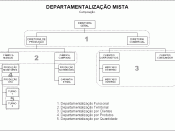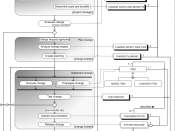Why is it so hard for organizations to manage change?
Jick (1993) defines change as "a planned or unplanned response to pressure and forces. Change is inevitable and organizations, which do not respond to change, are likely to struggle and may eventually, die. Change however can be painful and therefore needs to be managed, as the empirical evidence points to approximately 66% of major changes as failures. Fortune 500 executives claim that this is not because of a lack of resources but resistance to the change. Managing change will facilitate the achievement of strategic goals of the organization, which is its primary focus.
Change in an organization is influenced by two opposing forces: one that drives for change and one that resists. Driving forces may be external or internal e.g. a company's source of funding is being increased or decreased or there is pressure to use technology while the resisting forces are usually internal e.g.
group fears new ideas and prefers to do things the way they have always been done. In accordance with Lewin's (1951) force field model this equilibrium must be disturbed in a planned way in order to bring about change.
Resistance to change may be experienced from two sources the organization and the individual.
Organizations, their various departments and subsidiaries are often as resistant to change as individuals frequently through their:
Design- a highly bureaucratic where there is little delegation of responsibility and autonomy for employees would not readily lend itself to change and systems such as JIT and TQM.
Culture - highly authoritarian and bureaucratic cultures are difficult to change
Resource limitations- the resources required may be considerable and unavailable
Inter - organizational agreements - these may prevent the organization from implementing any change which might be seen as a breach to the agreement...


